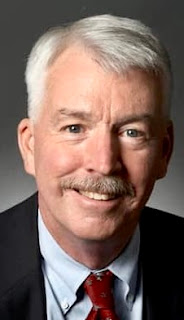Rainwater apparently is no longer safe to drink anywhere on Earth because of "forever chemicals" linked to cancer.
At least that's the findings of a new study, according to a recent story by Morgan McFall-Johnsen on the Business Insider website.
The study, made by a team of environmental scientists at the University of Stockholm, used U.S. contamination guidelines as a baseline. Results were published in the journal Environmental Science & Technology.
The hazardous chemicals — per- and polyfluoroaklyl substances, or PFAS — "have spread throughout the entire atmosphere, leaving no place untouched," the article indicates.
The University of Stockholm has been a site of studies of PFAS for a decade.
According to McFall-Johnsen's piece, there are "thousands of PFAS, all human-made, used in food packaging, water-repellent clothing, furniture, carpets, nonstick coating on pots and pans, fire-extinguishing foams, electronics, and some shampoos and cosmetics."
During manufacturing and daily use, the story continues, "they can be released into the air. They also leach into open water and get aerosolized in sea spray. From there, they spread through the atmosphere and fall back to Earth in rain."
The term "forever chemicals" stems from their lingering a long time before breaking down.
PFAs, the story says, are "a hazard to human health, and peer-reviewed studies have linked them to some cancers, decreased fertility, reduced vaccine response, high cholesterol, and developmental delays in children."
 |
| Ian Cousins, PhD |
Although "in the industrial world we don't often drink rainwater [directly], many people around the world expect it to be safe to drink, and it supplies many of our drinking water sources," the story also quotes Cousins.
Because PFAS "persist for so long and cycle through the planet's oceans, atmosphere, and soil so effectively, the researchers expect levels will continue to be dangerously high," the article underscores.
It is "vitally important," the researchers wrote, "that PFAS uses and emissions are rapidly restricted."
More information about chemicals adding to people's risk of disease can be found in "Rollercoaster: How a man can survive his partner's breast cancer," a VitalityPress book that I, Woody Weingarten, aimed at male caregivers.


